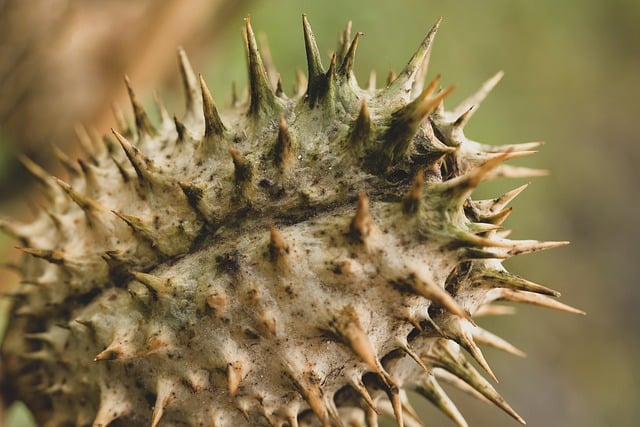THCA, or Tetrahydrocannabinolic Acid A, is a non-psychoactive compound found in cannabis that has garnered attention for its potential therapeutic properties. Its legal status in the European Union (EU) is subject to the varying laws of each member state, despite being technically classified as a controlled substance under international drug conventions. The EU's regulatory framework allows for cannabis products with up to 0.2% THC on a dry weight basis, which has implications for THCA's legal standing since it is the precursor to THC. While some EU countries like the Netherlands, Germany, Italy, and Greece have medical programs that recognize and utilize THCA's health benefits, other countries maintain stricter regulations. This creates a patchwork of laws across Europe, where the legality of THCA can vary significantly from one country to another. Businesses and individuals must stay informed about both EU-wide directives and individual national laws to navigate this complex legal landscape effectively. The interest in THCA's therapeutic potential continues to drive research and policy updates within the EU, highlighting its significant role in the evolving conversation around cannabinoids.
Discover the emerging landscape of THCA flower, a non-psychoactive precursor to THC found in the cannabis plant. This article delves into the legality and usage of THCA across European Union nations, providing clarity on where it stands within the continent’s regulatory framework. Explore the therapeutic properties and rising popularity of this natural remedy, as well as the intricacies of accessing and using THCA flower legally within diverse EU jurisdictions. Join us as we navigate the nuances of THCA legal status in EU countries, ensuring informed consumption patterns and highlighting the potential benefits associated with its use.
- Unraveling THCA Flower: A Comprehensive Guide to Tetrahydrocannabinolic Acid Legality and Usage in EU Countries
- 1.1. Understanding THCA and Its Legal Status Across Europe
Unraveling THCA Flower: A Comprehensive Guide to Tetrahydrocannabinolic Acid Legality and Usage in EU Countries

The cannabinoid THCA, or tetrahydrocannabinolic acid, is a non-psychoactive precursor to THC found in raw cannabis flowers. Its legal status across European Union countries varies and is subject to the specific laws of each member state. In the EU, THCA’s legality hinges on the regulatory framework set by the European Commission, which allows for the production, sale, and consumption of cannabis products containing no more than 0.2% THC on a dry weight basis. This threshold differentiates THCA from its psychoactive counterpart, ensuring that products rich in THCA can be legally marketed as they do not induce intoxication when used in their raw form.
EU countries have been exploring the therapeutic and wellness potential of THCA flower, with many nations recognizing its non-psychoactive nature and potential health benefits. Research has indicated that THCA may possess anti-inflammatory, neuroprotective, and analgesic properties, making it a subject of interest for those seeking natural alternatives for pain relief and other medical conditions. As such, the cultivation, sale, and possession of THCA flower are legal in some EU countries, provided they comply with national regulations regarding hemp-derived products. It’s important to stay informed about the evolving legislative landscape as different EU countries adapt their policies to reflect the latest scientific understanding and public health priorities concerning cannabinoids like THCA.
1.1. Understanding THCA and Its Legal Status Across Europe

1.1 Understanding THCA and Its Legal Status Across Europe
Tetrahydrocannabinolic acid A (THCA) is a non-psychoactive cannabinoid found in the Cannabis sativa plant, which is the precursor to the more well-known psychoactive compound, delta-9-tetrahydrocannabinol (THC). THCA has gained attention for its potential therapeutic properties, including anti-inflammatory and analgesic effects. As of recent legislation changes within the European Union, the legal status of THCA is subject to a complex web of regulations that vary by country. The EU’s legal framework categorizes cannabis derivatives, including THCA, under the 1961 Single Convention on Narcotic Drugs and its protocols, classifying them as controlled substances. However, member states have the authority to implement their own policies regarding the cultivation, production, and sale of cannabis products containing THCA. For instance, certain EU countries like the Netherlands, Germany, Italy, and Greece have established medical cannabis programs that recognize the medicinal value of THCA, allowing for its legal use under strict guidelines. Meanwhile, other European nations maintain more restrictive policies, reflecting a patchwork of legislation across the continent. It’s crucial for individuals and businesses operating within the EU to stay informed about the evolving laws and regulations pertaining to THCA, as they can vary significantly from one country to another. Navigating the legal landscape of THCA in Europe requires a keen understanding of both the overarching EU directives and the specific legislation of each country.
THCA, or tetrahydrocannabinolic acid, holds a complex legal position within the European Union, with regulations varying across member states. This comprehensive guide aims to clarify the nuances of THCA’s legality and its potential uses, offering clarity for those interested in the subject. As EU policies continue to evolve, it is imperative for individuals to remain informed about local laws concerning THCA flower. The exploration of this non-psychoactive cannabinoid’s status underscores the importance of understanding the legal landscape within which hemp-derived products operate in Europe. Stay informed on the latest developments in THCA legality as you navigate its potential benefits and uses.
